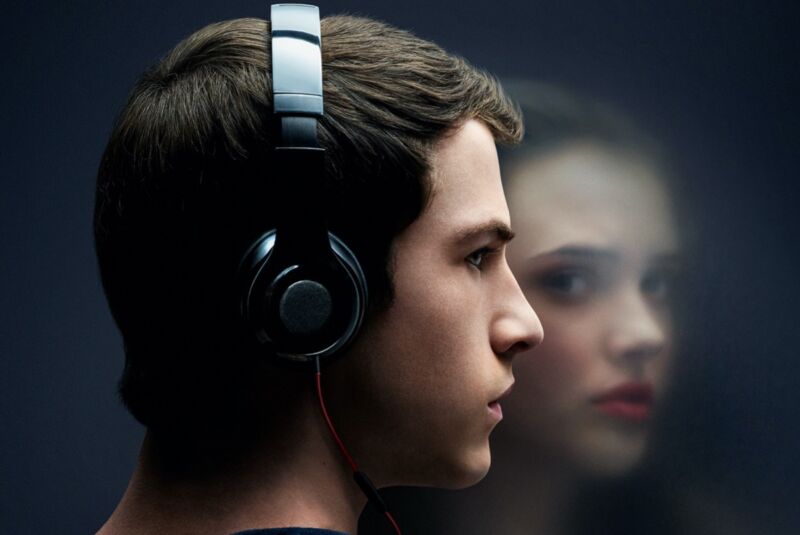How 13 Reasons Why sparked years of suicide-contagion research

Enlarge / Back in 2017, the first season of the Netflix series 13 Reasons Why sparked controversy about suicide contagion. Four years later, a new UCLA study offers guidance for Hollywood on how to best handle such topics going forward. (credit: Netflix)
When 13 Reasons Why debuted on Netflix on March 31, 2017, it was initially met with mostly rave reviews from critics and viewers alike. Viewers appreciated the show's frank and sensitive handling of such complex topics as suicide, bullying, rape, and depression. Within weeks, however, mental health professionals began voicing strong objections to the YA-targeted show's treatment of suicide in particular—these professionals believed the depiction could trigger suicidal thoughts or actions in vulnerable teens. It's well known that high-profile suicides can sometimes influence copycats, but the issue is less clear when it comes to fictional stories. Throughout the last four years, multiple, often contradictory studies on that very topic have since appeared. Some of the studies show negative impacts, while others show beneficial effects in young people who watched 13 Reasons Why.
The series aired its fourth and final season last year, but 13 Reasons Why continues to inspire research on the potential impact (positive or negative) of fictional stories on teen mental health. A new study available today from researchers affiliated with UCLA's Center for Scholars and Storytellers focuses specifically on the show's third season, and it shows that series like 13 Reasons Why can have a positive impact on teen mental health as long as the issues are depicted accurately and with empathy.
The report also recommends that appropriate supplementary resources be provided to viewers—which is a major challenge, since most viewers don't engage with such resources even when they are available. But whether it's a streaming series or accompanying readings, the researchers at UCLA's Center for Scholars and Storytellers strongly believe that the media tweens and teens consume plays a crucial role in their development, as it does with any other young demographic.
Read 55 remaining paragraphs | Comments
from Gaming & Culture – Ars Technica https://ift.tt/3tGMvso